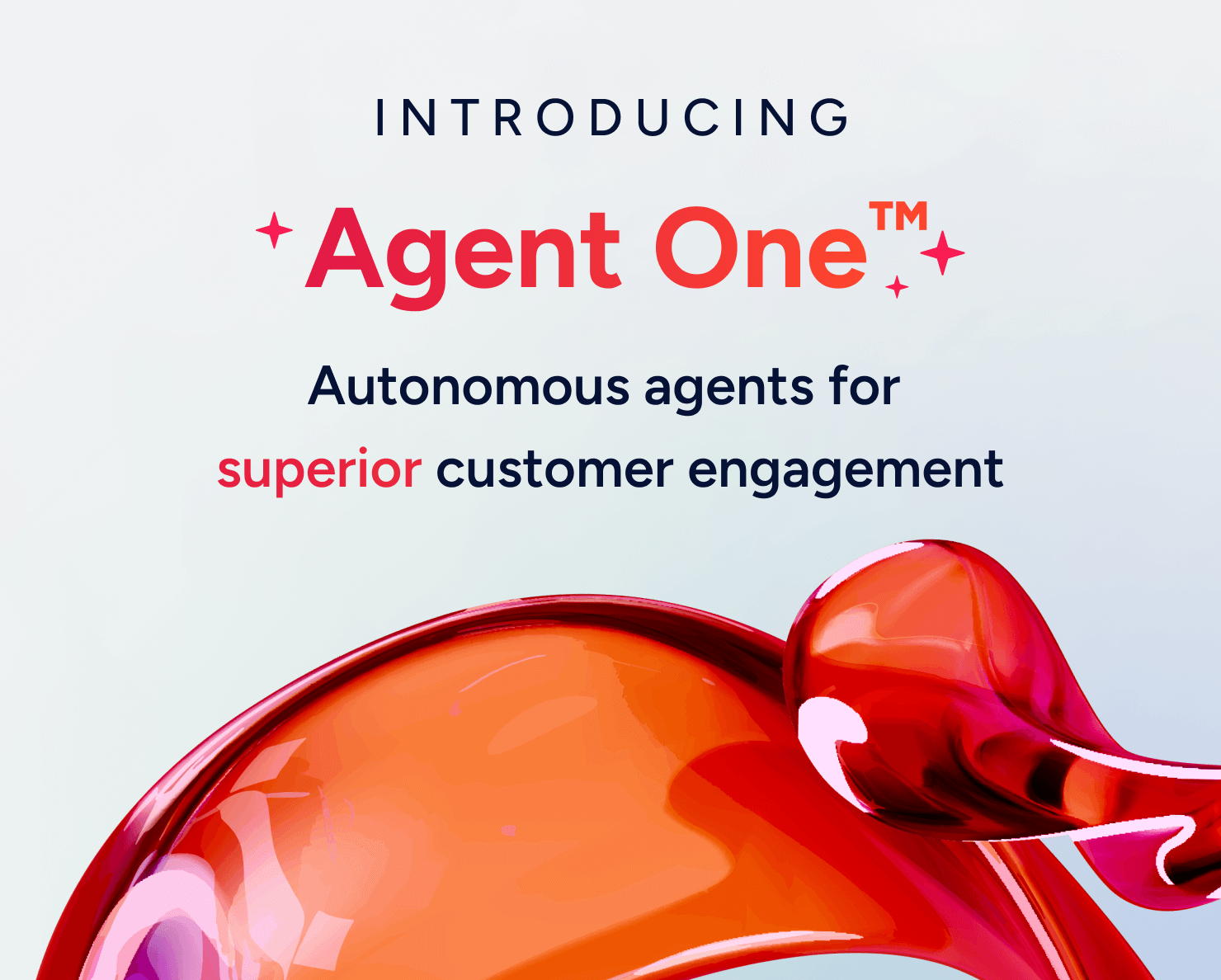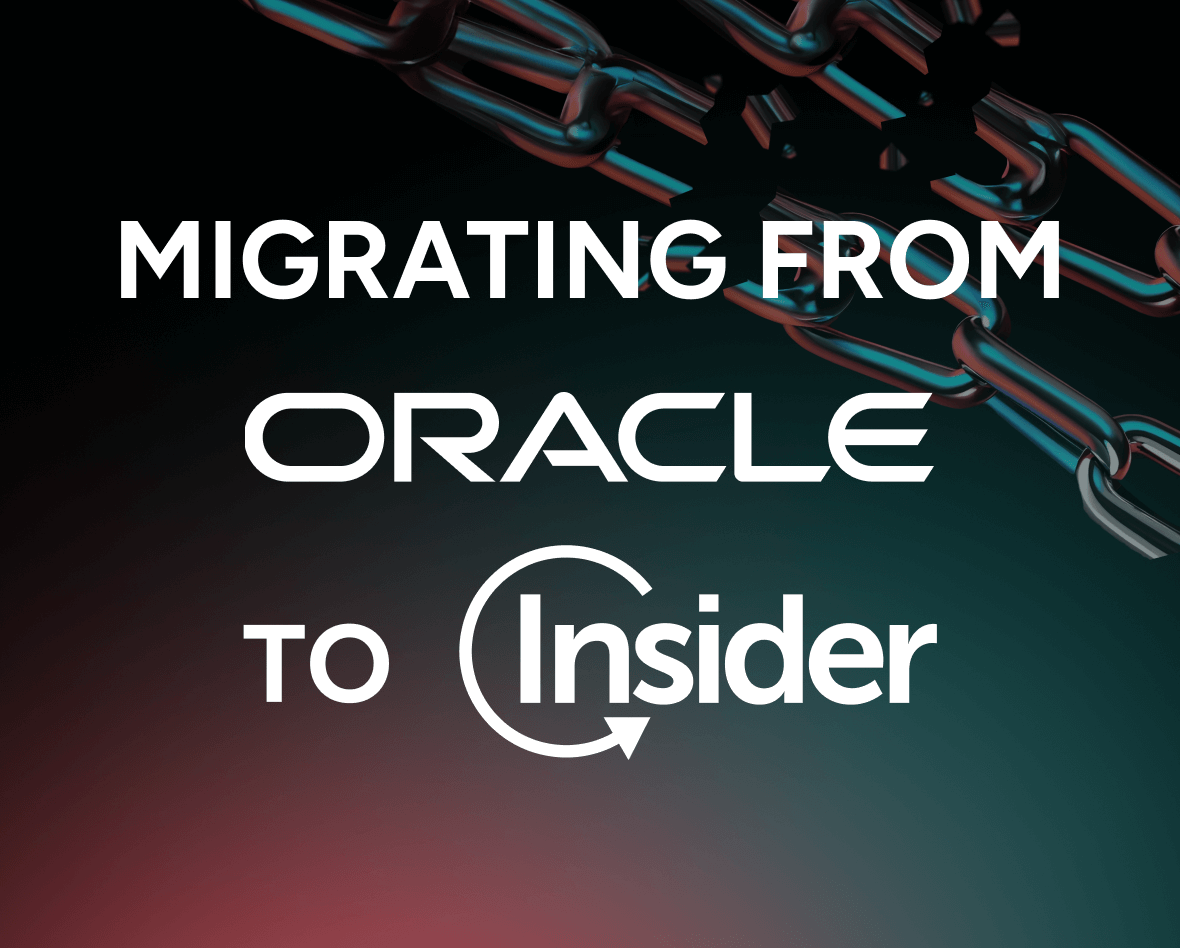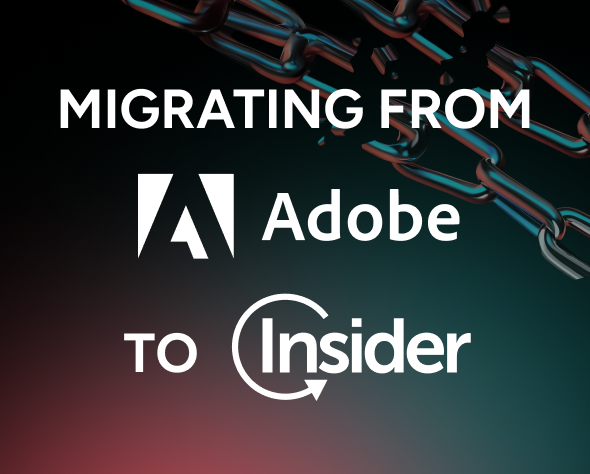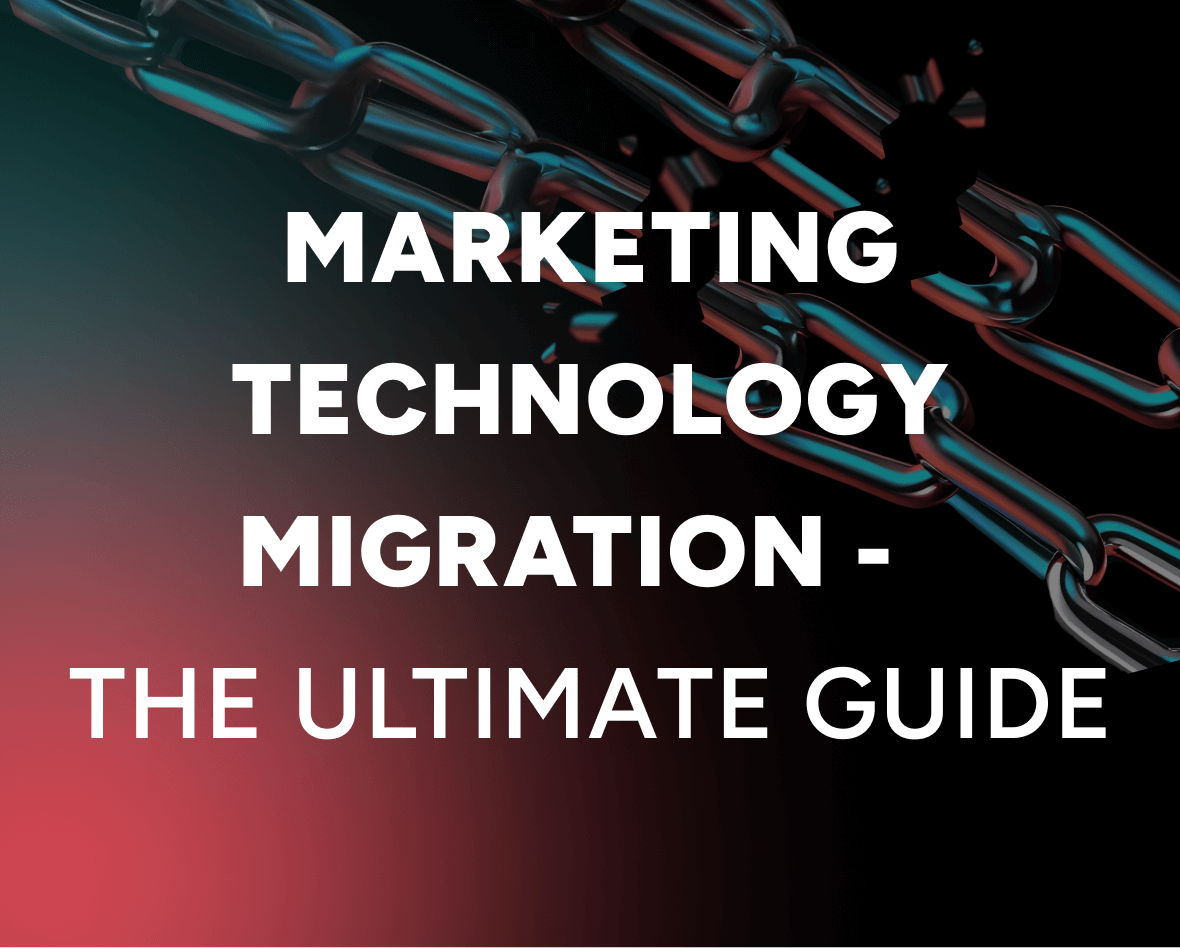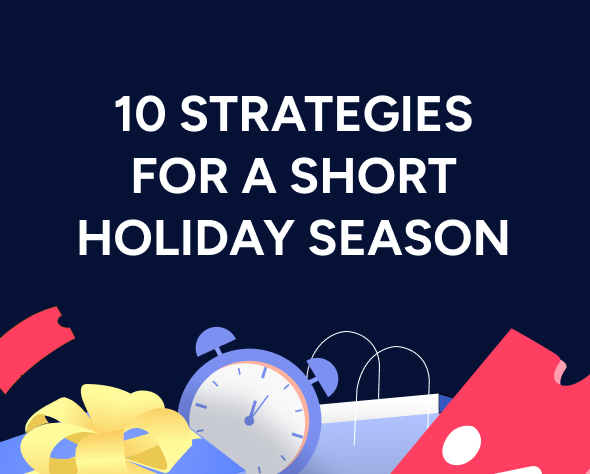A simple guide to developing a winning AI marketing strategy
Updated on 25 Aug 2025
AI for marketing is no longer just a possibility on the horizon—it’s here and it’s happening. That’s especially true when you look specifically at marketing.
According to one recent survey, 88% of marketing teams say they’re currently using or experimenting with AI for content personalization, chatbots, content production, product recommendations, and more.
A separate study found that an even more impressive 94.1% of marketers have started integrating AI into their processes. They also report that AI marketing automation is yielding positive results for sales, customer satisfaction, and the cost of marketing overhead.
So, for companies that want to stay competitive, AI is no longer something to keep an eye on—it’s something to take action on. And that’s exactly where an AI marketing strategy comes into play.
Looking back (and forward): The evolving landscape of AI in marketing
An AI marketing strategy uses artificial intelligence technology to improve or automate a variety of marketing tasks—such as analyzing customer data, predicting trends, or generating content—with the ultimate goal of improving the effectiveness of marketing campaigns.
AI-powered marketing has been a topic of conversation over the past few years, especially as the technology’s capabilities have continued to improve and, in some cases, even surpass human performance. Many experts point to AI as the “next Industrial Revolution” because of its incredible demand and potential impact.
McKinsey research shows that sales and marketing teams have led the charge in adopting generative AI specifically. But while generative AI in marketing is perhaps the most intuitive use case, it’s only the tip of the iceberg when thinking about how AI can streamline and support marketing efforts.
Hence the need for an AI marketing strategy to improve efficiency, personalization, and accuracy in marketing efforts. Yet the same McKinsey report shows that refining a strategy is an area where many organizations struggle. In fact, it’s the biggest challenge facing businesses that don’t currently consider themselves “AI high-performers.”
When the AI market is predicted to continue increasing at eye-popping levels over the next few years, hashing out an AI marketing strategy is quickly transforming from a competitive advantage to a crucial cornerstone on marketing teams.
What are the key components of an AI marketing strategy?
Your marketing strategy needs to incorporate AI. But simply saying, “We’re going to use AI!” isn’t a strategy in and of itself. To develop an AI marketing strategy that’s as helpful and valuable as possible, you need to iron out the when, where, why, and how of leveraging AI for your marketing efforts.
As you build your strategy, focus on how you’ll use AI to support, streamline, or systemize the following:
- Data collection and analysis: Gathering and examining large datasets to understand customer behavior and market trends.
- Predictive analytics: Using algorithms to forecast future trends and customer actions.
- Personalized marketing: Tailoring marketing messages and offers to individual customer preferences, behaviors, and journeys.
- Automation: Streamlining repetitive marketing tasks, including email campaigns, social media posts, data entry, reporting, and more.
- Customer segmentation: Categorizing customers into distinct groups for more targeted marketing campaigns and a more seamless omnichannel experience.
- Content generation: Creating a variety of content using tools like chatbots and content generators.
- Performance tracking: Monitoring and analyzing the effectiveness of marketing campaigns to make data-driven improvements
Ultimately, the goal isn’t to cram AI into your strategy for the sake of using advanced technology. Rather, it’s about looking at your strategy and existing efforts to determine how AI can make them even better.
How to implement an AI marketing strategy
Like any other change or improvement, implementing your AI strategy will require some larger shifts to your processes, workflows, and even your technology.
That can feel jarring and daunting, but it’s easier for teams to manage if they feel confident about the direction and the steps you’re taking. So before implementing your new marketing strategy, take the time to:
- Define your goals: What do you want to achieve with your AI marketing strategy? Whether it’s boosting sales, improving customer retention, or something else, defining your goals will help you tailor your efforts accordingly. Plus, clear objectives give the entire team more transparency into why you’re implementing AI—aside from trying to keep up with technology trends.
- Find the right technology partner: From conversational AI platforms to marketing automation solutions, there’s no shortage of technology options for marketing teams that are looking to implement AI. Finding the right solutions to meet your team’s needs will help you effectively roll out and scale your AI marketing initiatives without complexity and clunky workarounds.
- Communicate clearly: Once you know what you’re doing, why you’re doing it, and how it will work, share those details with all members of the marketing team and other important stakeholders. Explicitly state your goals and how you reached those decisions to increase buy-in and investment in the process. That makes AI feel more like an exciting development and less like a dreaded departure from the “old way” of doing things.
The best AI marketing strategies 2025
Looking for the best AI for marketing strategy? There isn’t one approach that reigns supreme—it depends on your unique goals and the makeup of your organization.
But with that said, there’s nothing wrong with gathering a little creative inspiration. So, we’ve rounded up a few of the many ways you can leverage AI to improve and streamline your marketing tactics. You can use AI to help with:
Providing personalized content recommendations
It’s tough to overstate the importance of personalization in marketing with AI, which allows you to deliver what your customers need when they need it. By analyzing user preferences and behavior, you can offer tailored recommendations and personalized content, which increases engagement and drives conversions.
Share relevant content, products, and offers across every touch point and channel with Insider
Leveraging predictive customer analytics
Wish you could get directly inside your customers’ heads? Predictive analytics is the next best thing. AI can use customer data to anticipate their needs and behaviors so you can target them with more relevant and effective marketing campaigns.
Engaging customers with two-way conversations
Conversational AI for customer experience is a growing focus area. Using AI-powered chatbots and voice assistants, businesses can engage customers in human-like, two-way conversations, offer personalized support and assistance, and provide a top-notch customer experience.
Engage customers in human-like, instant two-way conversations on channels like WhatsApp and Facebook Messenger with Insider
Creating localized email campaigns
When a whopping 71% of consumers expect companies to deliver personalized interactions, AI can help with creating highly personalized email campaigns with dynamic content and subject lines that automatically appear in the customer’s preferred language.
Improving end-to-end customer experiences
Your customer experiences aren’t static. AI can respond to customer actions and behaviors and auto-complete their journey paths in real time to yield the highest engagement and the best results.
Get started with the best AI marketing automation platform: Insider
AI offers a huge boost to both the effectiveness and efficiency of your marketing efforts. When you’re ready to find the right technology partner, look no further than Insider.
Insider combines predictive, conversational, and generative AI for customer experiences that boost loyalty and drive conversions. Put simply, it’s the most comprehensive AI tech stack for customer experience and marketing teams.
Insider’s AI solution is called Sirius AI™ and it offers marketing teams end-to-end customer experience automation. Here are a few of the standout features and capabilities you’ll find with Sirius AI™:
- Smart Segment Creator: Build profitable audience segments for cross-channel experiences up to 30X faster. Use generative AI prompts to auto-create segments, covering use cases from cross-selling to replenishment reminders.
- Smart Journey Creator: Remove the complexity from journey creation. Use prompts to auto-generate journeys that leverage usage data, machine learning, and generative AI to ensure the right message is delivered to the right user via the right channel. Journeys are ready-to-use and include best-performing channels for the specific segment and use case.
- Content Auto-Generator: Think creating campaign content is tedious and time-consuming? Create compelling content with a simple prompt and leverage automatic customization to match the channel and support the desired outcome.
- Image Auto-Generator: If design is a bottleneck in your marketing workflows, prompt Sirius AI™ to create relevant visuals for your campaigns.
- AI-Led Localization: Have a global audience? Sirius AI™ facilitates automatic content translation to generate multi-language messages in seconds.
- Content Scoring: Get a deeper understanding of what works and what doesn’t when Sirius AI™ automatically scores your messages based on relevance and past performance. You can use those data-backed insights to make your campaigns more effective—even before they launch.
- AI-Powered Search: Insider’s search engine enhances your site’s search capabilities by tailoring product recommendations based on AI, machine learning, and natural language processing (NLP).
- Conversational AI: Engage your customers with auto-generated, unstructured conversations on a variety of channels like WhatsApp, web, and app. Chatbots are powered by OpenAI and can participate in human-like interactions that are aligned with your brand guidelines.
- Personalized Product Recommendations: Sirius AI™ has over 20 algorithms to recommend the right product based on preferences, past actions, and affinity. You also have the flexibility to showcase different product categories based on different algorithms in a single recommendation platform.
- Predictive Segmentation: Use predictive AI to anticipate customer behavior. Insider offers ready-to-use segments like discount affinity, likelihood to engage, customer lifecycle, and more.
- Next Best Channel: Use AI to choose the next best channel for each user based on their likelihood to engage. This is completely hands-off—it happens automatically within journey orchestration with no manual intervention.
- Send Time Optimization: Optimize the send time of your campaign based on when your recipient is most likely to open and engage with it.
- A/B/n Autowinner: Automatically send the best-performing campaign to your audience based on the parameters and outcomes you set, such as click rate or open rate.
Insider’s patent-pending AI solutions help brands boost productivity by leveraging the combined power of generative, predictive, and conversational AI.
Looking forward, AI in marketing isn’t a bandwagon. On the contrary, it’s bound to be the bedrock of marketing teams that want to improve effectiveness while also boosting their efficiency.
Insider can help. Get started today.
Frequently Asked Questions
There are seven core components of an AI marketing strategy:
1. Data collection and analysis: Gathering and examining large datasets to understand customer behavior and trends.
2. Predictive analytics: Forecasting customer actions and market shifts using AI algorithms.
3. Personalized marketing: Creating tailored messages and offers based on individual preferences and journeys.
4. Marketing automation: Streamlining repetitive tasks like email campaigns, social media posts, and reporting.
5. Customer segmentation: Categorizing customers for more targeted and seamless omnichannel campaigns.
6. Content generation: Using AI tools to create diverse marketing content efficiently.
7. Performance tracking: Monitoring campaigns continuously to optimize results with data-driven insights.
AI in marketing helps increase efficiency by automating manual tasks, enhancing personalization and relevance and boosting customer engagement and conversion rates. It also improves predictive targeting to reach customers with the right message at the right time.
This helps you optimize campaigns in real time and make decisions faster. AI strategies also support scalable marketing efforts without needing proportional increases in resources.
AI analyzes vast behavioral and preference data to:
1. Deliver hyper-personalized content and product recommendations.
2. Automate segmentation based on predictive models.
3. Optimize message timing and channel choice using customer behavior.
4. Generate personalized content at scale that aligns with customer needs and brand tone.
There are five common challenges in implementing an AI marketing strategy:
1. Integrating AI smoothly with existing workflows and technology systems.
2. Maintaining data quality and resolving silos.
3. Ensuring team adoption and stakeholder buy-in.
4. Balancing automation with human creativity and oversight.
5. Managing privacy concerns and ethical use of customer data.
Insider offers a wide range of AI tools to help you execute your marketing strategy, such as:
1. Sirius AI™ combines generative, predictive, and conversational AI for complete campaign automation.
2. Smart segment creator auto-generates detailed, profitable customer segments with generative AI prompts.
3. Smart journey creator creates ready-to-use, AI-powered customer journeys that deliver the right message on the best channel.
4. Content & image auto-generator produces personalized marketing copy and visuals on demand.
5. AI-led optimization automates send-time optimization, next-best channel selection, and A/B test winner selection.
6. Conversational AI engages customers with natural, human-like conversations across web, app, and messaging platforms.

